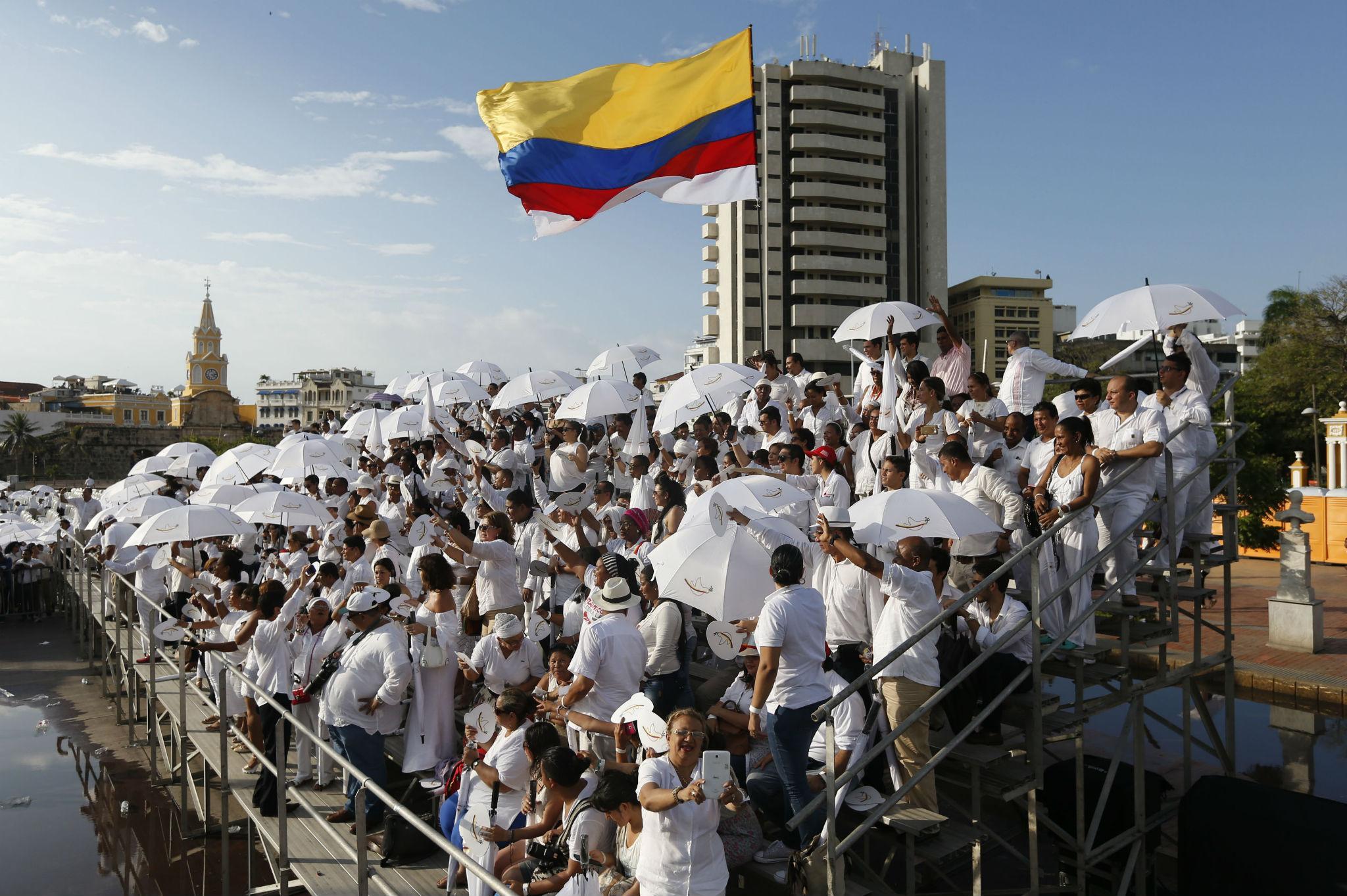Colombia peace deal: Longest war in the Western hemisphere comes to an end as Farc rebels sign treaty
The accord was signed using pens made from recycled bullets that were once used in the conflict

After five decades of civil war and four years of negotiations, the longest-running conflict in the Western hemisphere came to an end at last on Monday, as Colombia’s president Juan Manuel Santos signed a peace agreement with the leader of Farc, the Marxist guerrilla group.
Santos, 65 and 57-year-old rebel Rodrigo Londono, better known as Timochenko, were set to shake hands in Cartagena, as they signed the deal declaring the end of a war in which more than 200,000 people have been killed since 1964. The accord was to be signed using pens made from recycled bullets that were once used in the conflict. Inscribed on the side of each pen was the message: “Bullets wrote our past. Education, our future.”
The deal will see some 7,000 fighters from Farc (the Revolutionary Armed Forces of Colombia) giving up their weapons and re-integrating into Colombian civil society, along with 17,000 non-combatants also affiliated with the group, which will now become a legitimate political party.
After the US and Cuba restored diplomatic relations in 2015, the war in Colombia was the last remnant of Cold War conflict in Latin America. “Today we have a reason for hope: There is one less war on the planet,” Santos said ahead of the ceremony. “And that is the war in Colombia.”
Among the guests expected to attend the ceremony were United Nations Secretary General Ban Ki-Moon, Cuban President Raul Castro and US Secretary of State, John Kerry, who welcomed the agreement as a foreign policy success for the US, telling reporters: “It is time to put the past behind us and start to write a new future for Colombia.”
The US State Department will spend $390m next year on the peace process, which is to be monitored by the UN. Colombians are expected to approve the treaty when it goes to a national vote on 2 October.
Yet not all Colombians are content with the peace. Both sides in the war were guilty of human rights abuses: the guerrillas sexually enslaved women and kidnapped civilians for ransom; right-wing paramilitaries affiliated with the army were responsible for multiple extrajudicial killings.
Former president Alvaro Uribe, whose father was murdered by Farc, has expressed outrage that the deal permits rebel leaders to enter the country’s parliament without serving jail sentences first. Some of the guerrillas may prove reluctant to put down their arms, while drug traffickers made feel the conflict was better for their business than the coming peace.
The European Union has announced it will remove Farc from its blacklist of global terror groups, while Mr Kerry said the US would consider doing the same after the peace deal goes into effect.
Subscribe to Independent Premium to bookmark this article
Want to bookmark your favourite articles and stories to read or reference later? Start your Independent Premium subscription today.

Join our commenting forum
Join thought-provoking conversations, follow other Independent readers and see their replies